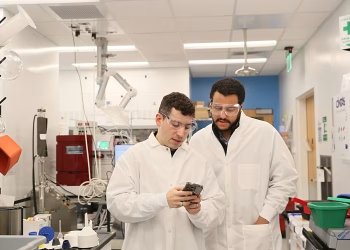The federal government said it was expecting an additional $60 million in grants as part of the $3 billion pledge by donor agencies during the signing of its Health Sector Renewal Compact with 36 states of the federation and the development partners last year.
This was as the government disclosed that the training of 120,000 frontline health workers serving rural populations will commence in two weeks across the country.
Recall that the federal government had in December 2023, signed a Health Sector Renewal Compact with the 36 states of the federation and development partners,aimed at channelling resources to fund the nation’s primary health care system.
Speaking at the Ministerial Sector Briefing, organised by the Federal Ministry of Information, in Abuja, the Coordinating Minister of Health and Social Welfare, Prof. Mohammad. Ali Pate, said the event which saw the partners pledged $3billion, reflecting their confidence in President Tinubu’s agenda, has witnessed the signing of “$932 million grant with GFATM, $200 million with a philanthropic foundation and expecting additional $60 million in grants, $150 million announced by the Gavi Alliance in addition to US$1 billion facility governed by MOU signed with Afreximbank to unlock the healthcare value chains.”
According to the minister, additional resources are being mobilised. “We have begun to strengthen the regulatory framework within the sector. There are 16 professional regulatory bodies and other regulators of pharmaceuticals, such as NAFDAC, pharmaceutical council, medical laboratories, medical and dental council, nursing and midwifery council, and other aspects of the ministry’s stewardship role that we have repositioned and reinvigorated their leadership.
“We have also engaged constructively with health professional associations and unions to foster healthy work environment.
“We have embarked on an ambitious digital transformation agenda to be on the path of electronic records, quality data for decision making and stronger data governance.
“Additionally, we have set up a committee on standards for tertiary healthcare, which has been absent for eight years. This committee is tasked with defining the standards for tertiary facilities, in line with the National Health Act. The details of these standards are now accessible online.
“We have also engaged multiple times with civil society, traditional leaders, religious leaders, and the media across the country, as a way to improve our orientation towards service to the Nigerian people, not narrow interests,” the minister said.
He explained that the Federal Ministry of Health, oversees 30 teaching hospitals, 22 federal medical centers, and 21 specialty hospitals, along with five core agencies, 16 regulatory bodies, 10 departments, and three special units.
“At the primary health care level, through the National Primary Health Care Development Agency, in collaboration with the states, we outlined a plan to revive 8300 primary health care centers across the nation to make them fully functional and to expand and upgrade to 17,000 Primary Health Care Centers over the next 3-years.
“The expansion is to refurbish these centers, equip them, making them fully functional to deliver essential services such as immunization, reproductive, maternal, newborn, and child health services, treatment of non-communicable diseases, and to facilitate referrals to secondary facilities. However, this ambitious plan requires the states to complement the efforts of the federal government,” he said
The minister, who recall that in September, government announced its commitment to retrain 120,000 frontline health workers, explained that, “this is part of a three-year agenda of President Tinubu, as recognized by the African Union as the African champion for human resources for health and community health delivery.
“To fulfill this promise, we have reviewed and updated the training guidelines and curriculum for these frontline health workers.
“The revised guidelines have been printed, and the resources for training have been secured. The trainers have been trained in almost all states. Within the next one or two weeks, the training itself will commence across all states of the federation.
“Over the next three years, at least 120,000 frontline health workers serving rural populations will be equipped with the necessary skills, supported by the infrastructure and equipment we will provide.
“At least 1,400 Primary Health Care Centers are now equipped to provide skilled birth attendance, funded through the NPHCDA and the NHIA, covering the 8,300 facilities.
“More than 2,400 health workers, including nurses, doctors, and midwives, have been recruited to provide services to Nigerians, many of whom are women in rural areas delivering essential services.”
































